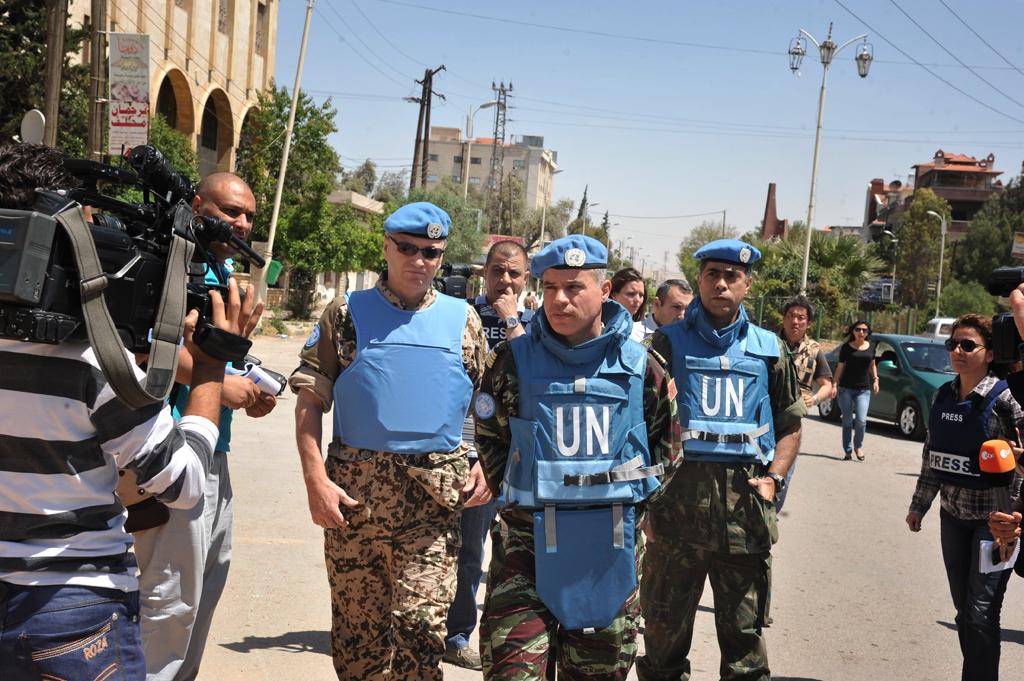Focus shifts to Damascus as Syrian violence escalates
Moroccan Colonel Ahmed Himmiche (C), head of the UN observers’ advance team tours Duma, in the suburb of the capital Damascus, on May 5, 2012.
Violence in Syria escalated Monday, prompting the United Nations (UN) to pull some of its staff out of Damascus amid fighting between regime and rebel forces in the capital.
The news came as The New York Times reported that Syrian rebels have been receiving covert military assistance from the United States' CIA, Arab nations, as well as Turkey in the form of secret airlifts.
The conflict in Syria, which began as a peaceful uprising against Assad a little over two years ago, has devolved into a war between the regime and a splintered armed rebel movement.
The United States has expressed support for the Syrian opposition, but has resisted offering military aid — as demonstrated by US President Barack Obama's decision on the matter last fall.
CIA-supported airlifts to the rebels may reflect a renewed sense of urgency as the Syrian conflict enters its third year, having claimed the lives of an estimated 70,000 people.
The United States has also reportedly been training Syrian secular fighters in Jordan over the past several months, unnamed sources told the Associated Press on Monday.
More from GlobalPost: Jordan blocks Syrian border crossing as violence escalates
Meanwhile, fresh violence in Damascus saw the conflict entering a new stage. Syrian rebel forces on Monday launched an assault near Syrian President Bashar al-Assad's place of residence, sources told Reuters, while regime forces pounded the capital from a strategic vantage point on nearby Mount Qasioun.
UN spokesperson Martin Nesirky told reporters in New York that the agency is pulling staff after "a number of mortar shells fell in close proximity to, and on the grounds of, the hotel in Damascus housing UN staff" on Sunday and Monday, Al Jazeera reported.
More from GlobalPost: Riad al-Asaad, Syrian rebel commander, loses leg in bomb attack
"The mortar fire caused some damage to the building and some cars, including one UN vehicle. The United Nations Security Management Team has assessed the situation and decided to temporarily reduce the presence of international staff in Damascus due to security conditions," Nesirky said.
Until recently, Damascus remained mostly under the control of Assad's regime even as other major Syrian cities fell under rebel control.
Every day, reporters and producers at The World are hard at work bringing you human-centered news from across the globe. But we can’t do it without you. We need your support to ensure we can continue this work for another year.
Make a gift today, and you’ll help us unlock a matching gift of $67,000!
